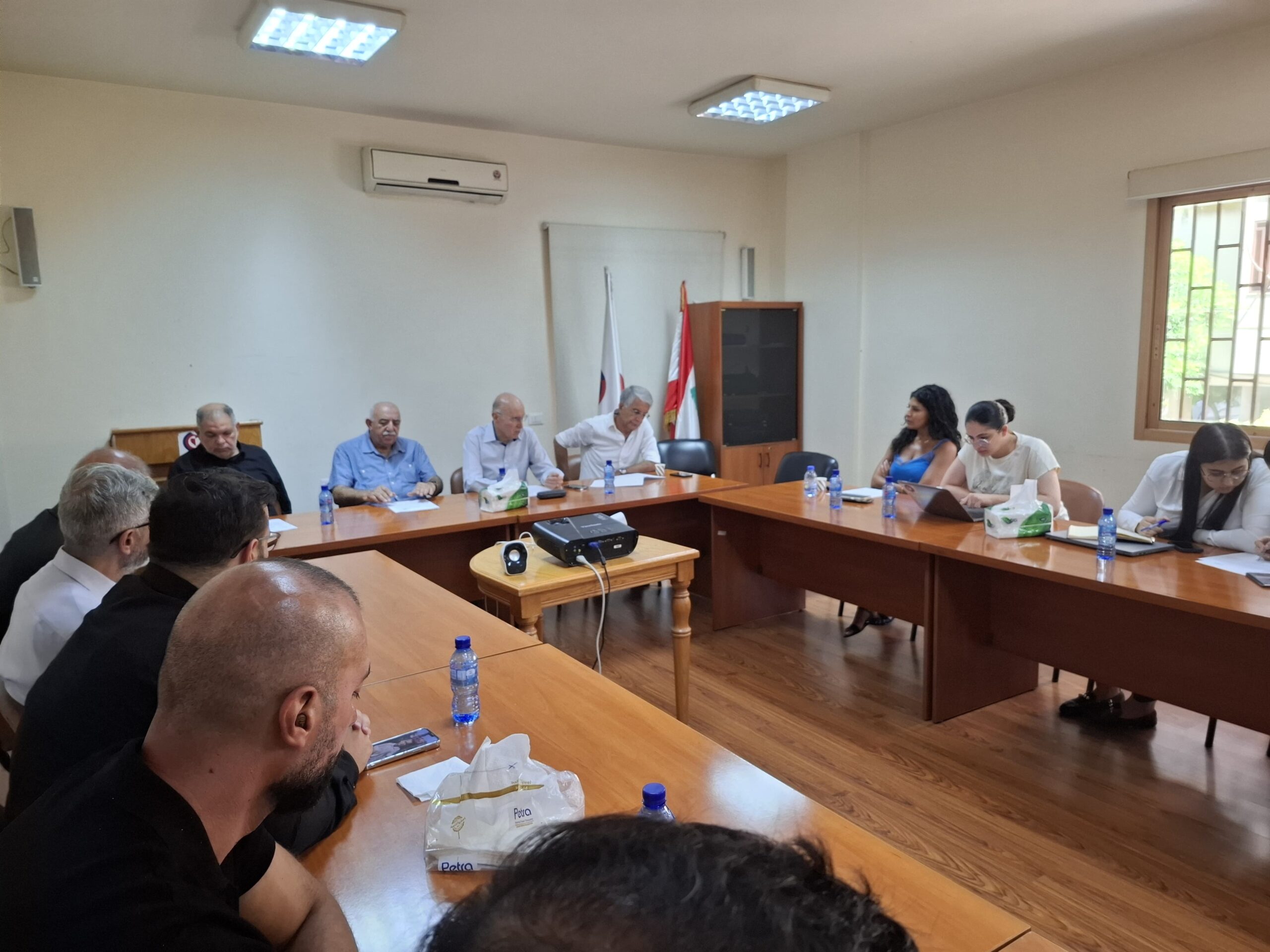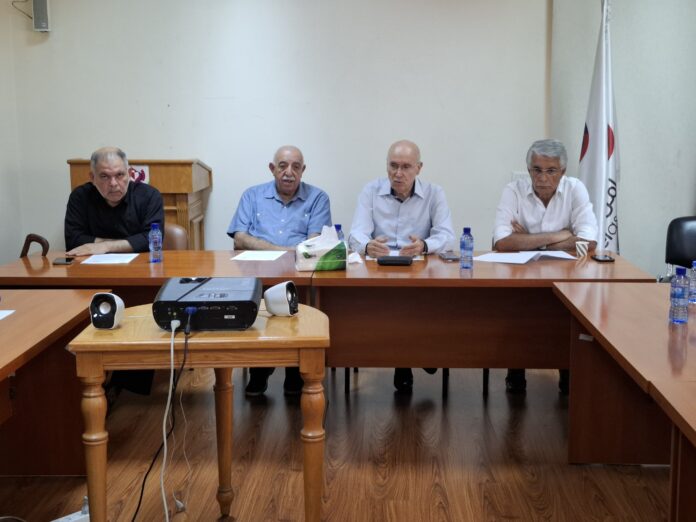Representatives of the Lebanese NGOs Network and the Follow-up Committee for Lebanese and Palestinian Civil Society Organizations met on August 7, 2024, at the “Amel House” for Human Rights, to discuss the humanitarian aspects and disastrous effects of the state of war and escalation that Lebanon is witnessing, in light of Israel’s continued genocide against the Gaza Strip and its attacks on several areas of Lebanon, disregarding international humanitarian laws and agreements.
The participants issued a statement read by the general coordinator of the gathering, Dr. Kamel Mahna, in which they expressed their solidarity with the Palestinian people in Gaza and the West Bank, who are facing the most violent war of genocide and ethnic cleansing witnessed in modern history, and with the people of southern Lebanon, a large part of whom have been displaced under the pressure of Israeli attacks. This displacement is taking place amid a stifling economic crisis that Lebanon has been experiencing for years, as reports from the World Bank and United Nations organizations show that the majority of the Lebanese people suffer from poverty and destitution, in addition to issues of pollution, social ills, and other factors that make Lebanon highly vulnerable, even though its people enjoy a spirit of struggle and great determination.
 The participants warned that the continuation of the escalation and the outbreak of a war on Lebanon would lead to a humanitarian catastrophe that could extend to all parts of the world, especially in light of the multi-dimensional crisis that Lebanon is suffering from at all levels.
The participants warned that the continuation of the escalation and the outbreak of a war on Lebanon would lead to a humanitarian catastrophe that could extend to all parts of the world, especially in light of the multi-dimensional crisis that Lebanon is suffering from at all levels.
The participants also considered that coordination and integration of efforts in responding to people’s needs between the government sectors, especially the Ministries of Health and Social and Humanitarian Affairs, is the condition for Lebanon to be able to overcome this ordeal and withstand the crises that are sweeping it, because humanitarian organizations are forces of pressure, support and integration with the public sector and are not a substitute for it, and they will not be able to carry out the task of strengthening the steadfastness of the people of Lebanon and its residents alone in this difficult stage.
The statement called on all governments of the world and humanitarian institutions to pressure decision-makers to stop the war in Gaza and to put an end to the crimes committed in full view of the world so that Lebanon is not left with a dark fate in the presence of an occupation that does not care about international humanitarian laws or international laws and agreements. The international community is today facing a real test because the inability to put an end to the genocide in Gaza and allow the same to happen again in Lebanon means that the whole world will slide into a bloody conflict and chaos that will not benefit anyone, but will be destructive to all human civilization.
At the end of the meeting, the members of the network, who are the largest Lebanese humanitarian institutions, stressed that they are the ones who know the meaning of solidarity and support in the emergency phase through field experience and agreed to continue coordinating with international partners to enhance the response plan, support the people of villages, towns, and areas exposed to Israeli attacks, and secure humanitarian support in all its dimensions. They also called on the international community and humanitarian organizations to work quickly to protect human rights, prevent any military escalation in Lebanon, and not repeat the same experience that is currently happening in Gaza, as there is no stability in the region without a just solution to the Palestinian issue. The repetition of what is happening in Gaza means that the international community must reconsider its composition, role, effectiveness, and even its existence.


 Creative Commons Attribution 4.0 International license
Creative Commons Attribution 4.0 International license